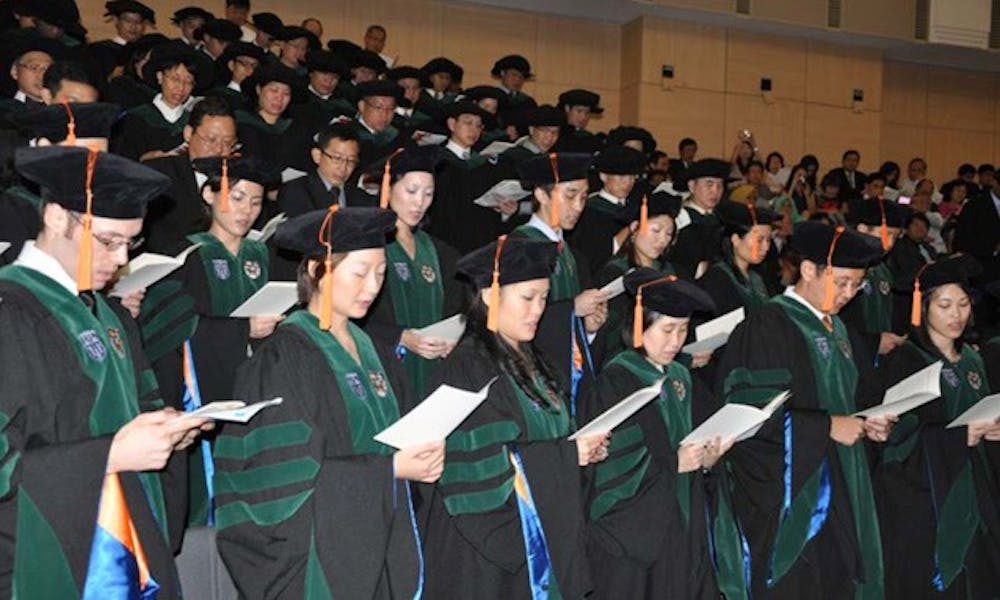The Duke-National University of Singapore Graduate Medical School will soon bid farewell to its inaugural class, marking a major step in the school’s six-year history.
The graduating class includes 24 medical students who will receive joint medical degrees from Duke and NUS in a ceremony July 4. The class was also honored in a special celebration and hooding ceremony May 28, which acknowledged the students’ completion of their studies.
Duke-NUS administrators said this inaugural graduation will solidify the school’s important role—and accomplishments—in medical training.
“Because of the close collaboration between NUS and Duke, the school has been able to develop a ground-breaking program in graduate medical education very quickly,” wrote NUS President Tan Chorh Chaun in an email June 22. “In six short years, Duke-NUS has built a strong international reputation, attracting very high quality students, faculty and researchers.”
The graduates will begin their residencies later in July across areas including emergency medicine, internal medicine and pediatrics, among others.
This training is part of a structured residency program created by SingHealth and the National Healthcare Group, Tan said. The Accreditation Council for Graduate Medical Education—the American body which accredits post-M.D. medical training programs within the United States—closely supervised the residency program’s creation.
Tan added that he believes partnerships like the one between Duke and NUS will become more common in the future as the world continues to globalize.
“Today, medicine and higher education are increasingly globalized activities,” he said. “Strategic and mutually beneficial partnerships, such as this one... are pioneering innovations that leverage on this trend and provide our students and institutions with distinctive new value propositions in education and research. [Duke-NUS] is a new model of medical education, innovative research and institutional partnership.”
The July graduation will be as equally important for the students as for the school, Duke-NUS Dean Dr. Ranga Krishnan said, adding that it is a milestone in Duke-NUS’ progress as a medical institution.
“The school has achieved all its goals many years ahead of schedule,” Krishnan wrote in an email June 20. “It has established a significant place in medical education, and the learning methods that have been developed have become a major part of [training].”
Duke junior Ming Jiu Li, a Singapore native, said he agreed that Duke-NUS represents a new system of education—not only because of its unique fusion of two schools but also because of the new education model it is introducing to Singapore.
“Medical education in Singapore used to follow the British system in which there is no pre-professional education and students enter medical school after their high school education,” he said. “Duke-NUS—I believe—is the first institution to break this mold and provides Singapore with the benefits of the U.S. medical education through a graduate program that can attract individuals with diverse backgrounds.”
The next phase of Duke-NUS’ curricular progress will increasingly integrate and expand academic and medical research, Krishnan said.
Duke will also continue to have a significant role in planning and shaping the graduate medical school’s future, Tan added.
“Duke is a truly wonderful partner,” he said. “We challenge each other intellectually so as to come up with fresh and exciting new approaches. Yet, we work in a collegial atmosphere marked by warmth and a collective aspiration for the future.”
Get The Chronicle straight to your inbox
Signup for our weekly newsletter. Cancel at any time.

